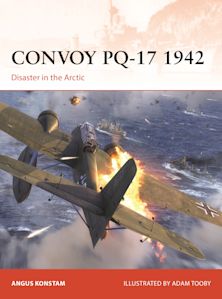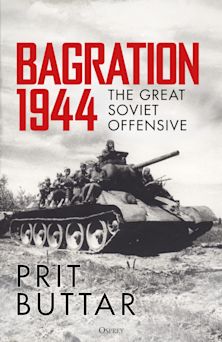Osprey Publishing Home
For information on how we process your data, read our Privacy Policy
Description
This gripping study offers key insights into the tactics, leadership, combat performance and subsequent reputations of six representative Chindit and Japanese infantry units involved in three pivotal actions that hastened Japan's defeat in Burma during World War II.
In order to keep China in the war against the Japanese, the Western Allies knew they had to return to Northern Burma. Colonel Orde Wingate, a military maverick and proponent of guerrilla warfare, believed that a different type of British infantryman was required for this role - the Chindit, indoctrinated with special training - to re-enter the jungles and mountains of Northern Burma in order to combat the victorious Japanese forces there. The Chindits' opponents would include the 18th Division, one of Imperial Japan's most seasoned formations, which by 1941 had already accumulated as much operational experience as most Anglo-American divisions would acquire in the entire 1939-45 war.
In a host of encounters the two sides clashed repeatedly in the harsh conditions of the Burmese jungle; the intended role and subsequent operational performance of the Chindits remains fraught with controversy today.
Table of Contents
The opposing sides
Nankan Station: 6 March 1943
Pagoda Hill: 16–18 March 1944
Mogaung: 2–12 June 1944
Analysis
Aftermath
Orders of Battle
Bibliography
Index
Product details
| Published | Feb 17 2015 |
|---|---|
| Format | Paperback |
| Edition | 1st |
| Extent | 80 |
| ISBN | 9781472806512 |
| Imprint | Osprey Publishing |
| Illustrations | 50 b/w; 4 col |
| Dimensions | 248 x 184 mm |
| Series | Combat |
| Short code | CBT 10 |
| Publisher | Bloomsbury Publishing |

Resources
Discover More
Visit our exclusive member's website to see artwork, maps, and more from this book.

Resources
Book Vote
Tell us what titles you would like to see published by Osprey, then vote for your favourites in our monthly book vote!



























